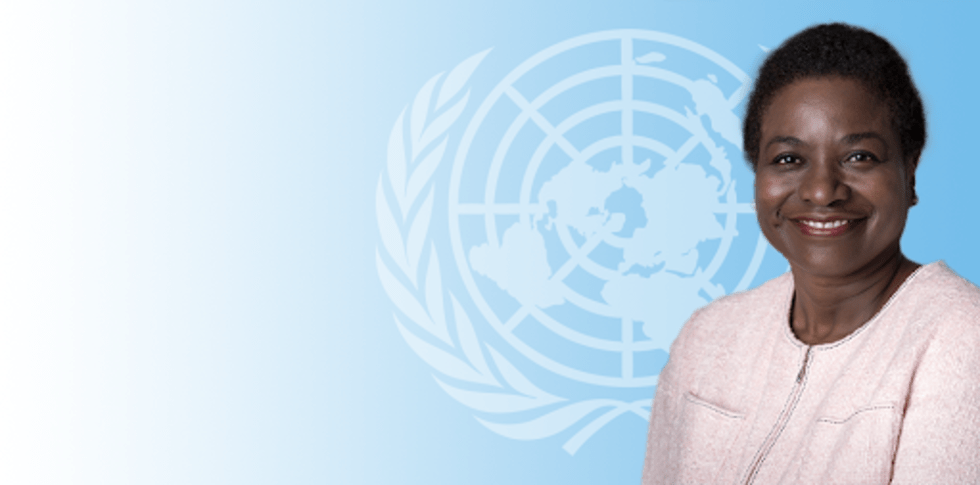The New Year is a time for reflection and for resolutions – a time to take stock of our successes and challenges, to strengthen our resolve and to set goals for the future. For us at UNFPA, the roll-out of our new Strategic Plan is an opportunity to do so.
As your new Executive Director, I am proud that through the turmoil and transitions of 2017, UNFPA staff working in more than 150 countries stood together, showed their mettle and continued to deliver impressive life-saving results for the women and girls we serve, even in the most dangerous settings.
Last year, we reached more than 33 million women and over 1.6 million adolescents and young people with services for their sexual and reproductive health and to prevent and tackle gender-based violence.
Contraceptives provided by the Fund had the potential to avert an estimated 30,800 maternal deaths, 11.6 million unintended pregnancies and 3.6 million unsafe abortions.
Expanding options and choices for the poorest women and adolescent girls is the most important thing we do. By empowering them to make their own decisions about the timing and spacing of pregnancies, we open an important pathway towards their economic security and independence, as well as the realization of all the Sustainable Development Goals.
This vision of inclusiveness and equality, of a world where no woman or girl is left behind, informs our Strategic Plan for the next four years. The new plan is our roadmap for the first leg of our collective journey to 2030.
To get there, we have three strategic results that we will work with our partners to achieve:
1. end unmet need for family planning;
2. end preventable maternal deaths; and
3. end gender-based violence and harmful practices, including child marriage and female genital mutilation.
Our strength in collecting and analyzing population data will continue to inform everything we do and will ensure that everyone is accounted for in the pursuit of these three ambitious aims and of global goals for sustainable development.
In 2018, we will continue working with our partners across the humanitarian-development-peace nexus so that work in one area reinforces the others. We will focus on preparedness, risk reduction and building resilience.
In all we do, let’s focus on innovation, on being bold, vocal and visible, and on leaving no one behind.
UNFPA’s immediate priorities for 2018 include:
· Strengthening communications, advocacy and partnerships towards achieving universal access and getting to zero;
· Strengthening innovation, especially in our ever-increasing humanitarian activities; and
· Working with governments and other partners to prepare for 2019, which will mark the 50th anniversary of UNFPA operations and the 25th anniversary of the International Conference on Population and Development (ICPD) Programme of Action.
UNFPA is poised to be extraordinarily successful, and our success will be a shared success for the world’s women and adolescent girls when they can claim their right to make their own decisions about their bodies and their futures.
I am optimistic because I know we are better focused and better positioned today to consolidate our gains, to innovate for scale, and to work together with a wide range of partners to deliver strong results.
Thanks to the work of UNFPA and its partners, fewer women are dying giving life, and more women than ever before are using modern contraceptives.
Now we need to speed up these efforts to reach a future where zero is the only acceptable number: zero unmet need for family planning, zero maternal deaths, and zero violence and harmful practices against women and girls.
Working together, we can ensure that every woman and adolescent girl everywhere can prevent an unintended pregnancy, can give birth safely and can live free from violence.



